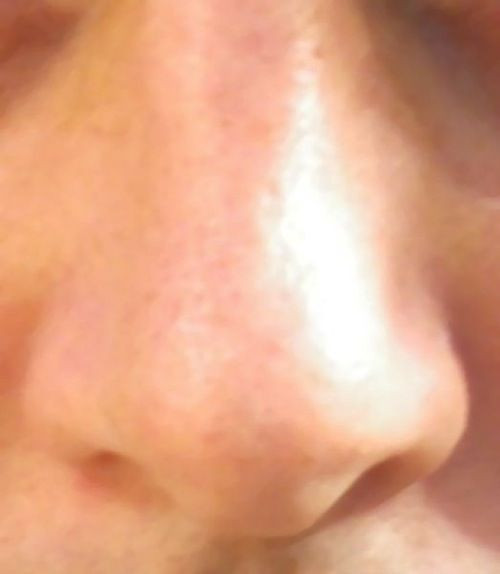Your Race May Determine The Age You Lose Your Sense Of Smell

It's well known that as a person ages, their senses weaken. But a new study finds that race may determine the age at which someone loses their sense of smell, after it found that blacks and Hispanics lost their ability faster than whites.
Although about 24 percent of Americans aged 55 and older experience problems with their smell, it gets much worse as they age. About 30 percent of people aged 70 to 80 have problems with smell, and the number rises to over 60 percent for people over 80 years old, according to a press release.
For the study, researchers at the University of Chicago, along with survey teams from the National Opinion Research Center used a standard, commonly used test to assess the smelling capabilities of 3,005 older adults between the ages of 57 and 85. They were asked to smell five different odors, one at a time, and identify what they were out of four choices. The odors included peppermint, fish, orange, rose, and leather.
The participants included information about their race and ethnicities, and answered questionnaires about their physical and mental health, social and financial resources, education, and alcohol or substance abuse.
The researchers found that only 49 percent were able to recognize all five smells correctly, with performance declining as age increased — 64 percent of participants that were 57 years old were able to identify all five smells, while only 25 percent of participants aged 85. The study also confirmed previous studies that found that women were able to perform better than men in their age group — the equivalent of five years younger.
The most surprising finding, even for the researchers was that non-whites scored 47 percent lower than whites. In other words, they performed as if they were nine years older.
"We have long known that men begin to lose their sense of smell some years sooner than women, but this is the first study to point to racial or ethnic differences," Dr. Jayant Pinto, study author and associate professor of surgery at the University of Chicago, said in the release. "What surprised us was the magnitude of the difference. The racial disparity was almost twice as large as the well documented difference between men and women."
Pinto and his team say the reason for this difference is unclear. But they suggest it may have something to do with genetic variations, nerve-damaging substances in the environment, or both.
"Race likely serves as a proxy for differential environmental exposures and life experiences, which may interact with biological differences," the authors said in the study.
Other reasons they give, particularly for Hispanics, include recent immigration, and social and cultural factors, such as inequalities in education, household assets, and health-related cognitive problems. However, they were unable to determine exactly what caused this for blacks.
The findings can have a large impact on how each person lives. With smell affecting taste so much, the researchers suggest that having a weaker sense of smell can lead to poor food choices. Having a weaker sense of smell, is the "canary in the coal mine of human health," as Pinto puts it.
A person with a weaker sense of smell — or taste — might be tempted to use more salt or sugar in their foods. This can lead to high blood pressure or diabetes. Both of which have been shown to be more prevalent in non-white populations. High blood pressure is more prevalent among non-Hispanic blacks (40.4 percent), compared to whites (27.4 percent) and Hispanics (26.1 percent), according to the Centers for Disease Control and Prevention (CDC). The starkest similarity to this study, however, comes with diabetes. The American Diabetes Association found that those diagnosed with diabetes between 2007 and 2009, were 12.6 percent black, 11.8 percent Hispanic, and only 7.1 percent white.
Source: Pinto J, Schumm L, Wroblewski K, et al. Racial Disparities in Olfactory Loss Among Older Adults in the United States. The Journals of Gerontology. 2013.



























